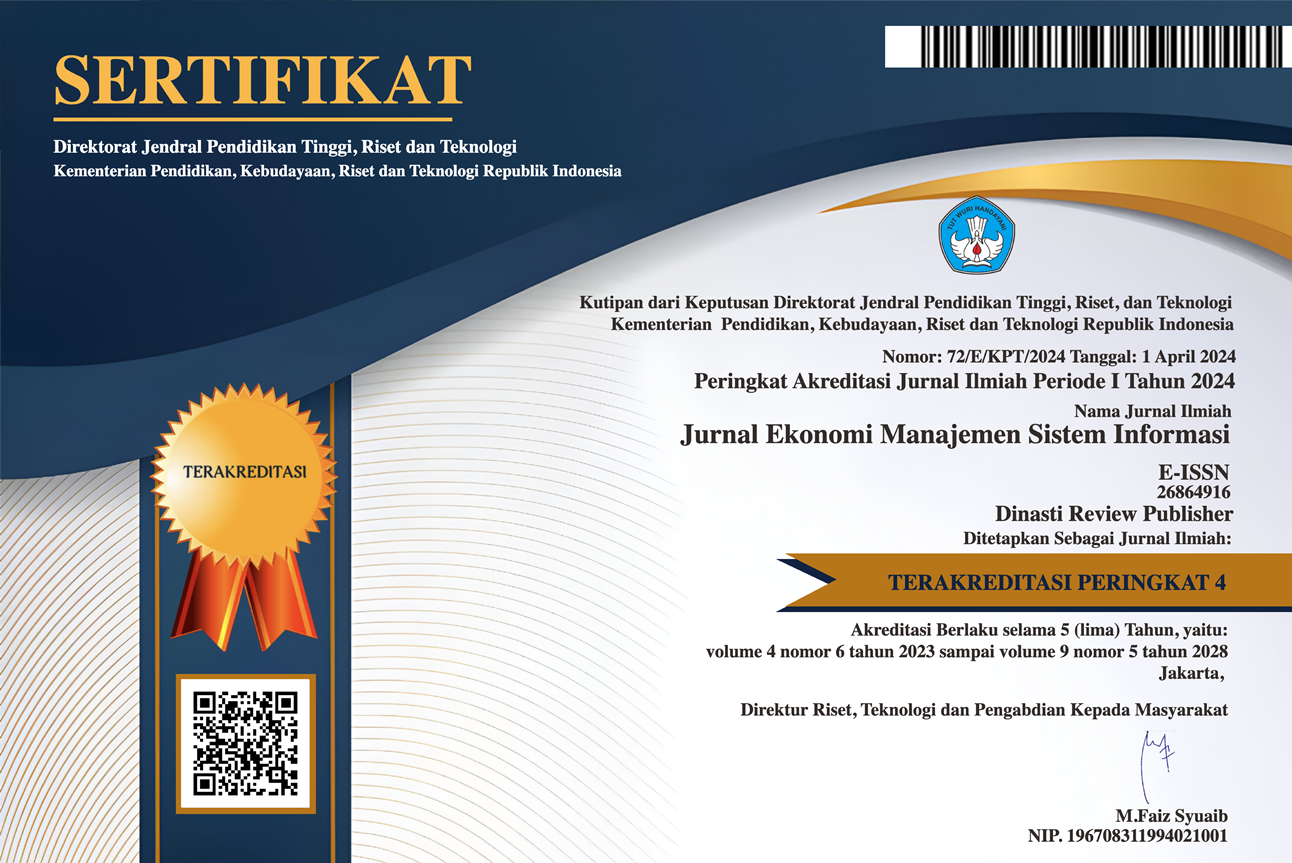Exploring Community Resilience, Emotional Solidarity and Place Attachment for Disaster Preparedness (Case Study: Rural Destination in West Sumatera)
DOI:
https://doi.org/10.38035/jemsi.v6i4.4580Keywords:
Community Resilience, Emotional Solidarity, Place Attachment, Disaster Preparedness, Tourist Destination, West SumatraAbstract
This research explores community resilience, emotional solidarity, and place attachment in disaster preparedness at rural tourist destinations in West Sumatra. Using a qualitative approach, data were collected through in-depth interviews with stakeholders, including village tourism managers, disaster activists, and community representatives. The research results show that place attachment and emotional solidarity play an important role in building community resilience to disasters. Factors such as disaster mitigation, social support, and the readiness of infrastructure and regulations are key in strengthening community preparedness. This study provides in-depth insights for tourism destination managers and policymakers in designing more effective strategies for community-based disaster preparedness.
References
Çakar, K. (2021). Tourophobia: fear of travel resulting from man-made or natural disasters. Tourism Review, 76(1), 103–124. https://doi.org/10.1108/TR-06-2019-0231
Chen, T. L. (2020). Structural analysis of how place attachment and risk perceptions affect the willingness to live in an earthquake-prone area. Disaster Prevention and Management: An International Journal, 29(4), 557–573. https://doi.org/10.1108/DPM-08-2018-0249
Dey, B., Mathew, J., & Chee-Hua, C. (2020). Influence of destination attractiveness factors and travel motivations on rural homestay choice: the moderating role of need for uniqueness. International Journal of Culture, Tourism, and Hospitality Research, 14(4), 639–666. https://doi.org/10.1108/IJCTHR-08-2019-0138
Ge, Q., Yang, J., Tang, F., Wang, Y., He, Q., Chen, H., Ji, Q., Ding, F., Jiang, Y., & Wang, Y. (2022). The Effects of Place Attachment and Emotional Solidarity on Community Residents’ Attitudes toward Glacier Tourism. Land, 11(11), 1–18. https://doi.org/10.3390/land11112065
Genç, R. (2018). Catastrophe of Environment: The Impact of Natural Disasters on Tourism Industry. Journal of Tourism & Adventure, 1(1), 86–94. https://doi.org/10.3126/jota.v1i1.22753
Kastenholz, E., Marques, C. P., & Carneiro, M. J. (2020). Place attachment through sensory-rich, emotion-generating place experiences in rural tourism. Journal of Destination Marketing and Management, 17(June). https://doi.org/10.1016/j.jdmm.2020.100455
Li, H., Chen, J. L., Li, G., & Goh, C. (2016). Tourism and regional income inequality: Evidence from China. Annals of Tourism Research, 58, 81–99. https://doi.org/10.1016/j.annals.2016.02.001
Moon, J. W., Hwang, H., & Chung, J. B. (2020). Factors affecting awareness of preparedness after moderate earthquakes: An analysis of the Pohang earthquake in Korea. Disaster Prevention and Management: An International Journal, 29(3), 405–420. https://doi.org/10.1108/DPM-07-2019-0209
Unurlu, Ç. (2021). The effect of place personality on resident welcoming tourist through positive and negative impacts of tourism. International Journal of Tourism Research, 23(4), 636–651. https://doi.org/10.1002/jtr.2431
Wang, J., & Zhai, X. (2023). Leveraging emotional solidarity in disaster recovery. Annals of Tourism Research, 99, 103530. https://doi.org/10.1016/j.annals.2023.103530
Waugh, W. L., & Han, Z. (2017). Recovering from Catastrophic Disaster in Asia. Community, Environment and Disaster Risk Management. http://dx.doi.org/10.1108/s2040-7262201618
Zhuo, Y., Luo, X., & Yi, T. (2024). The effectiveness of a disaster preparedness educational intervention for wheelchair users: A pilot study. International Journal of Disaster Risk Reduction, 112(February), 104812. https://doi.org/10.1016/j.ijdrr.2024.104812
Downloads
Published
How to Cite
Issue
Section
License
Copyright (c) 2025 Nadya Mustafa, Sari Lenggogeni, Yulia Hendri Yeni

This work is licensed under a Creative Commons Attribution 4.0 International License.
Hak cipta :
Penulis yang mempublikasikan manuskripnya di jurnal ini menyetujui ketentuan berikut:
- Hak cipta pada setiap artikel adalah milik penulis.
- Penulis mengakui bahwa Jurnal Ekonomi Manajemen Sistem Informasi (JEMSI) berhak menjadi yang pertama menerbitkan dengan lisensi Creative Commons Attribution 4.0 International (Attribution 4.0 International CC BY 4.0) .
- Penulis dapat mengirimkan artikel secara terpisah, mengatur distribusi non-eksklusif manuskrip yang telah diterbitkan dalam jurnal ini ke versi lain (misalnya, dikirim ke repositori institusi penulis, publikasi ke dalam buku, dll.), dengan mengakui bahwa manuskrip telah diterbitkan pertama kali di Jurnal Ekonomi Manajemen Sistem Informasi (JEMSI).










































































